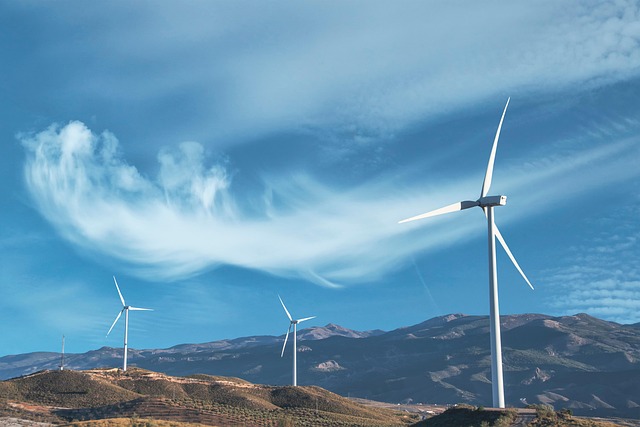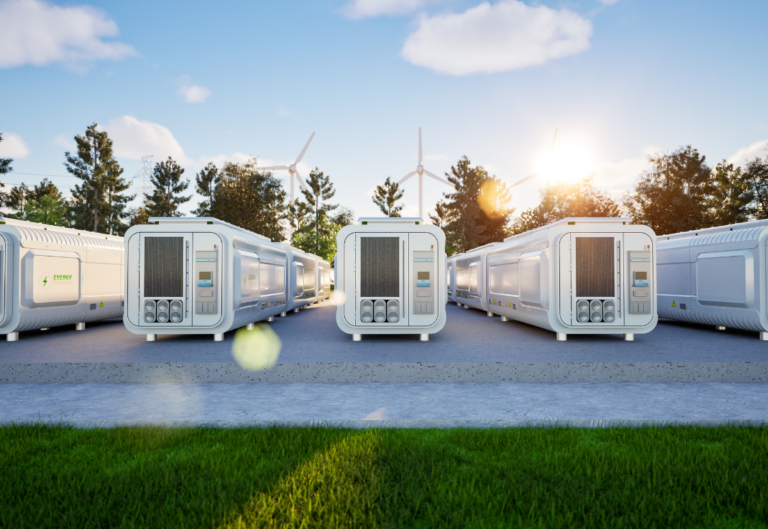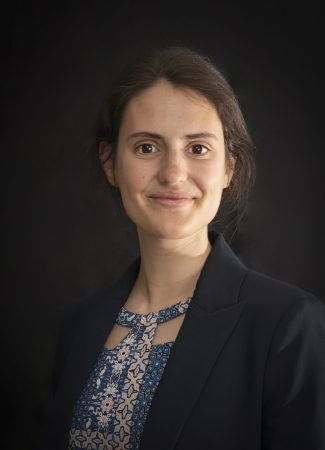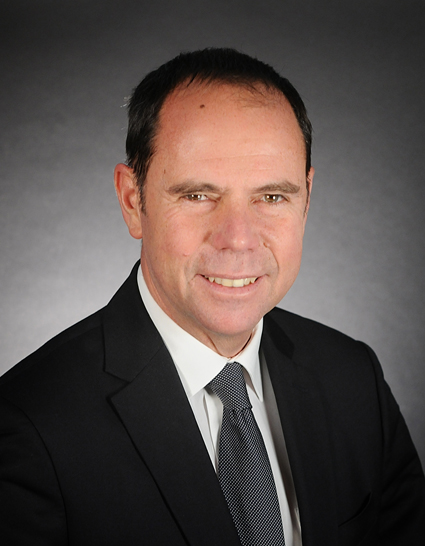On Wednesday, May 18th, EC President Ursula von der Leyen unveiled the EC´s REPowerEU plan, a proposal aimed at becoming independent of Russian fossil fuels imports while, at the same time, guaranteeing security of supply of the bloc and continuing to adhere to – or even boost – the previously tabled main targets to become carbon neutral by 2050.
The REPowerEU proposal focuses on three main aspects: saving energy, producing clean energy, and diversifying the bloc´s energy supplies, all of which will be backed by financial and legal measures.
In this article we shall provide our readers with an overview of the key measures envisaged under this plan as well as with some reactions observed in the energy market.
Following the strong demand for gas during the Covid-19 economic recovery, European energy prices hit new price hikes, only exacerbated by geopolitical tensions between Russia and the West in the aftermath of Russia´s invasion of Ukraine. These tensions have resulted in a plethora of sanctions packages on Russia (the 7th of which is about to be approved) and threats made by Russia to cut energy supplies to Europe, namely natural gas exports.
To put an end to the EU´s dependence on Russia (which typically supplied around 40% of Europe´s gas needs, or c. 150bcm/yr) and risk no more supply issues (with Poland, Bulgaria and Denmark having already seen their Russian gas supplies completely cut), the EU wants to reduce its Russian gas imports by around 100bcm/yr (c. two-thirds) by the end of this year.
To this end, and going forward, a number of measures have been put forward by the EC in the so-called REPowerEU proposal (REPowerEU: Joint European Action for more affordable, secure and sustainable energy), which focuses on three main areas:
- Energy Savings and Energy Efficiency:
In the short-term:
An EU Save Energy Communication with recommendations on how citizens and businesses can save around 13bcm of gas imports. For example, by reducing heating temperatures/using less air-conditioning or switching to more public transport.
EU-coordinated demand reduction plans in case of gas supply disruptions:
- a European coordinated plan for the curtailment of industry
- Member States to update contingency plans, increase reverse flow capacities from west to east by next winter
- Identify common criteria for curtailment, including priority for non-protected consumers
In the medium-term (to be achieved before 2027):
Increase energy savings by raising the EU-wide target on efficiency for 2030 from 9% to 13%, plus regulatory measures to increase energy efficiency in the transport sector. Proposed measures include, amongst others:
- Introduce obligations to reduce energy consumption, stop fossil fuel subsidies and promote RES technologies in transport and industry
- Extend buildings Minimum Energy Performance Standards
- Tighten national heating system requirements for existing buildings and introduce national bans for boilers based on fossil fuels in existing and new buildings.
- Accelerated deployment of renewable energy:
Over time, the clean energy transition will help lower energy prices and reduce import dependency. To this end, the REPowerEU plan is introducing the following measures:
In the short-term:
- Rapid roll-out of solar and wind energy projects together with renewable hydrogen deployment to save around 50bcm of gas imports
- Increase the production of biomethane to save 17bcm of gas imports
- Approval of first EU-wide hydrogen projects by the summer
In the medium-term:
- New legislation and recommendations for faster permitting procedures for wind farms and solar panels. Renewable energy becomes an overriding public interest, with ‘go-to’ areas introduced at MS level with low environmental risk. Also, recommendations and guidance to MS will be made on corporate PPAs.
- Increase the European renewables target for 2030 from 40% to 45%. This would bring the total renewable energy generation capacities to 1236GW by 2030, in comparison to 1067GW by 2030 envisaged under the ‘Fit-for-55’ package.
- The EU Solar Energy Strategy aims to bring online over 320GW of newly installed solar PV by 2025 – more than double that of today´s level – and almost 600GW by 2030. These additional capacities will save 9bcm/yr natural gas by 2027. It also proposes to make solar panels mandatory for public and new residential buildings by 2025 and 2029, respectively.
- A European Solar Rooftops initiative, i.e., a gradual obligation to install solar rooftop panels in certain buildings, combined with renovations, while promoting self-consumption.
- A new hydrogen accelerator to build 17.5GW of electrolysers by 2025 to fuel EU industry with domestic production of 10 million tonnes of renewable hydrogen and 10 million tonnes of renewable hydrogen imports by 2030. Also, introduce a regulatory framework for hydrogen.
- A dedicated action plan to boost biomethane production to 35bcm by 2030.
On the positive side, some Member States have seen their installed RES capacity increase significantly in 2021 and are fast-tracking the implementation of new energy laws that accelerate solar and wind deployment. For example, Germany has seen solar installed capacity increase by 4.8GW to 58.5GW and has already added c.2GW during the first five months of 2022. Wind installed capacity increased by 1.6GW to 63.8GW, with an additional 0.6GW deployed so far his year. For its part, Spain´s solar capacity increased by 3.4GW to 16GW and has already added 1.2GW during the first five months of 2022, while wind capacity was up by 0.7GW and stood at 27.5GW, with more than 0.2GW deployed so far this year.
Quite surprisingly, however, and contrary to the nature of further RES deployment, the EC supports having nuclear and coal-fired power stations running longer in order to guarantee the stability of the electricity grids. By way of example, Belgium has only recently extended the life of its two newest nuclear reactors (Doel4 and Tihange3) by 10 years to 2035. For its part, Germany is planning to put 8.5GW of idled coal plants and some oil-fired generation capacity on standby until the end of March 2024 as a precautionary measure should the country face disruptions to gas supplies imported from Russia.
- Diversifying energy supplies:
In the short-term:
In order to reduce its reliance Russian, the EU will need to replace a substantial amount of gas by finding and diversifying alternative energy supplies and supply routes. To reach this goal, proposed measures include:
- Common purchases of gas, LNG and hydrogen via the new EU Energy Platform (already created though still not launched) for all Member States who wish to participate. This platform will pool demand, coordinate infrastructure use, negotiate with international partners and prepare for joint gas and hydrogen purchases.
- New energy partnerships with reliable suppliers, including future cooperation on renewables and low carbon gases.
- Fill gas storage to 80% of capacity by November 1st, 2022.
In the medium-term:
- Investments in an integrated and adapted gas and electricity infrastructure network.
- Build long-term partnerships around the globe that are mutually beneficial.
- The REPowerUkraine initiative will help ensure energy supply and rebuild the Ukrainian energy sector after the war
- Prepare the EU for Renewable Hydrogen Trade in terms of Hydrogen Partnerships with non-EU countries, guarantee that EU regulation is observed, and kick-start the global renewable hydrogen markets.
The proposal of organizing common purchases of natural gas has already had some reactions. So much so that Member States have invited the EC to consider setting a temporary price cap on energy imports as a way of curbing rising energy prices, on the one hand, and to work on optimising the European electricity market – including the impact of gas prices on it – on the other. This last consideration very much reminds us of the ‘Iberian Singuarity’, very much criticized by some Member States which are now calling for a similar market intervention.
As already indicated in our introduction, financial and legal measures to support the implementation of above three main targets are also contemplated under the REPowerEU Plan, some of which are being the object of heated discussions given their implications:
Additional investments of €210 billion will be required between now and 2027 to achieve the EU´s independence from Russian fossil fuel imports, currently costing European taxpayers c. €100 billion/yr. These investments include, amongst others:
- €86bn in Renewables and €27bn in key hydrogen infrastructure by 2030
- €56bn in Energy efficiency and heat pumps by 2030
- €41bn for adapting the industry to use less fossil fuels by 2030
- €37bn to increase biomethane production by 2030
- €29bn in the power grid by 2030 to enable higher electricity use
- €10bn to import enough LNG and pipeline gas by 2030
Additional funding for the implementation of the REPowerEU plan is included under the Recovery and Resilience Facility (RRF), which is at the core of the plan. Member States should add a REPowerEU chapter to their Recovery and Resilience Plans (RRP) to channel the required investments and make necessary reforms, and cand use the remaining RRF loans (currently €225bn) and new RRF grants funded by the auctioning of ETS allowances, currently held in the Market Stability Reserve (worth €20bn) for, amongst others:
- Boosting energy efficiency in building, and decarbonising industry
- Increasing the production of sustainable biomethane and renewable or fossil-free hydrogen, and increasing the share of renewable energy
- Addressing internal and cross-border energy transmission bottlenecks and supporting the electrification of transport infrastructure
- Improving energy infrastructure and oil and gas facilities for immediate security of supply.
Many voices have been raised against the allocation of specific funds to improve the infrastructure of fossil fuels facilities, as this contravenes the very heart of the Energy Transition.
Funding investments with the proceeds obtained from the auctioning of ETS allowance currently held in the MSR is also being highly criticized. More emissions rights in the market means that their price will decrease, and polluters will no longer be incentivised to switch to renewable generation.
All in all, the need to conceive and implement a REPowerEU plan comes to show that energy supply security matters more than the huge profits made by the big utilities, let alone transitioning towards a greener future.
And experience tells us that this will not be a bed of roses. Betting on new technologies which are not yet sufficiently mature as is the case of hydrogen, can result more costly in the longer run than we think. And procuring LNG at sensible prices, even if bought at a ‘group’ level, can be a hard task to achieve once Asian countries start using their economic power once again and have shipments redirected to their own ports.
Michaela STERNHAGEN






